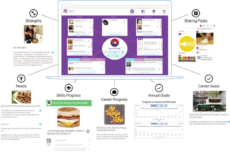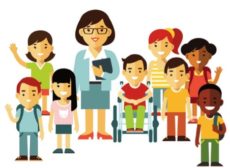BY KIMBERLEE MCCAFFERTY I STILL REMEMBER THE DAY I KNEW MY AUTISTIC SON WOULD REMAIN ON THE SEVERE END OF THE SPECTRUM. Justin was five and in the last few weeks of his pre-school program before he would transition back into district to his hometown public school. I recall going to his classroom for some type of program, the theme of which escapes me, and seeing a little blond girl he’d started with almost two […]
Category: Featured Topics
A Web App for IEP Self-Direction, Enhanced Self-Determination, and Employability
BY TOM KEATING, PH.D AND TOBIAS RICKARD, MS Self-determination is the combination of personal knowledge, skills, beliefs, and attitudes that empower an individual to have increased personal autonomy, decision-making, and involvement in goal setting when planning for their future. Research in the area of self-determination supports the value of student involvement in the IEP process and transition planning. In return, studies have shown that students who are more actively involved in their transition planning are […]
New Challenges For Introducing People With Disabilities Into The Workforce
BY MARILYN HOYSON, PH.D October marked National Disability Employment Awareness Month, which traces its origins to 1945. Much has changed since that time. Today our nation recognizes the needs and contributions of individuals with all types of disabilities, and legislation is continually evolving to protect the rights of individuals with disabilities in the workplace. Integrated employment for individuals with disabilities has become a priority over the past several years, bringing with it significant changes to […]
Resources for Funding Medical & Educational Services for Children with Special Needs
BY BRENDA L. FIGUEROA AND LAUREN AGORATUS, M.A. Families of children with disabilities may struggle to get services for their children in schools and the medical system. They may not know how to get their child evaluated, that there may be free or low-cost services, or that there are organizations that can provide them with information and support. Some parents become peer supporters for other parents, helping them to navigate challenging systems, after advocating for […]
Dealing With The Dyslexia Paradox
Students with dyslexia are often not identified until they are older and are not offered proper services and intervention until someone notices there’s a real deficiency, which often happens after the ideal time for intervention (kindergarten and 1st grade) has passed. BY SHANTELL THAXTON BERRETT When the diagnosis of dyslexia – and later dysgraphia – came to light with my son, I felt overwhelmed and afraid. I was unsure of how to help him, or […]





